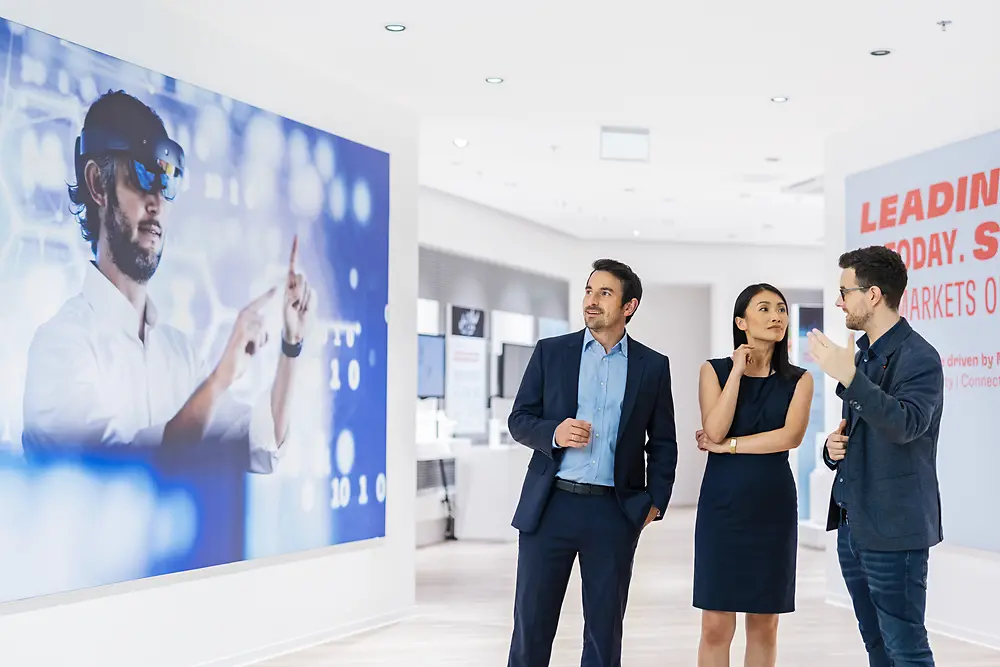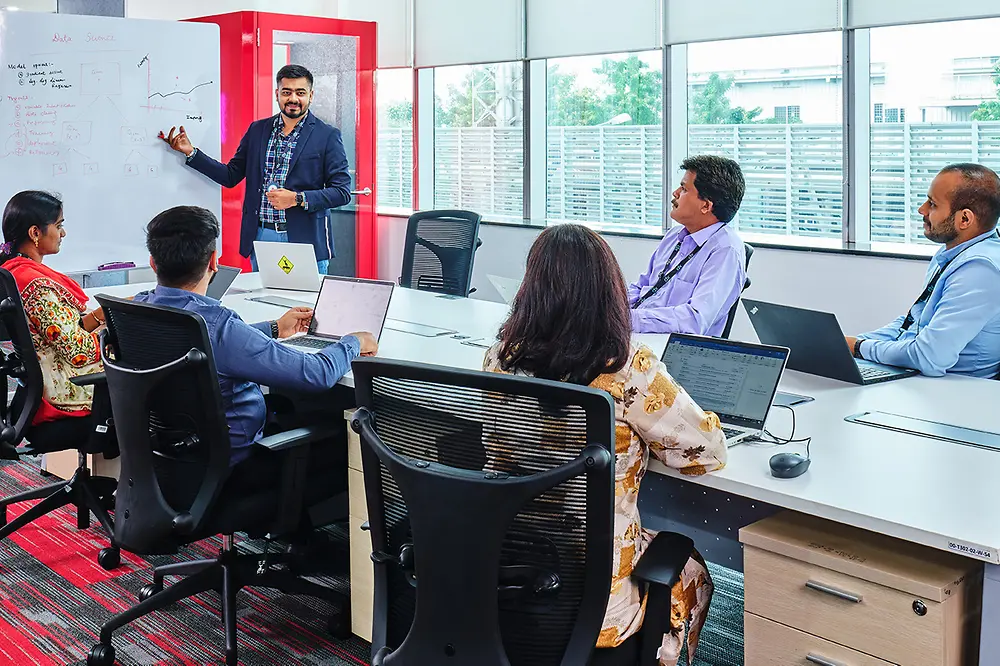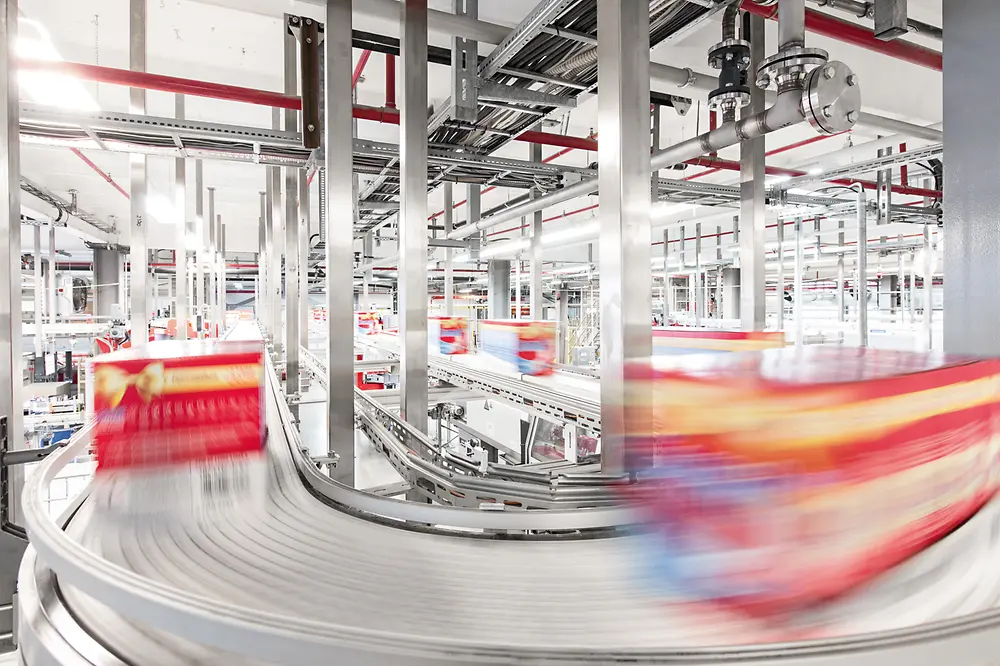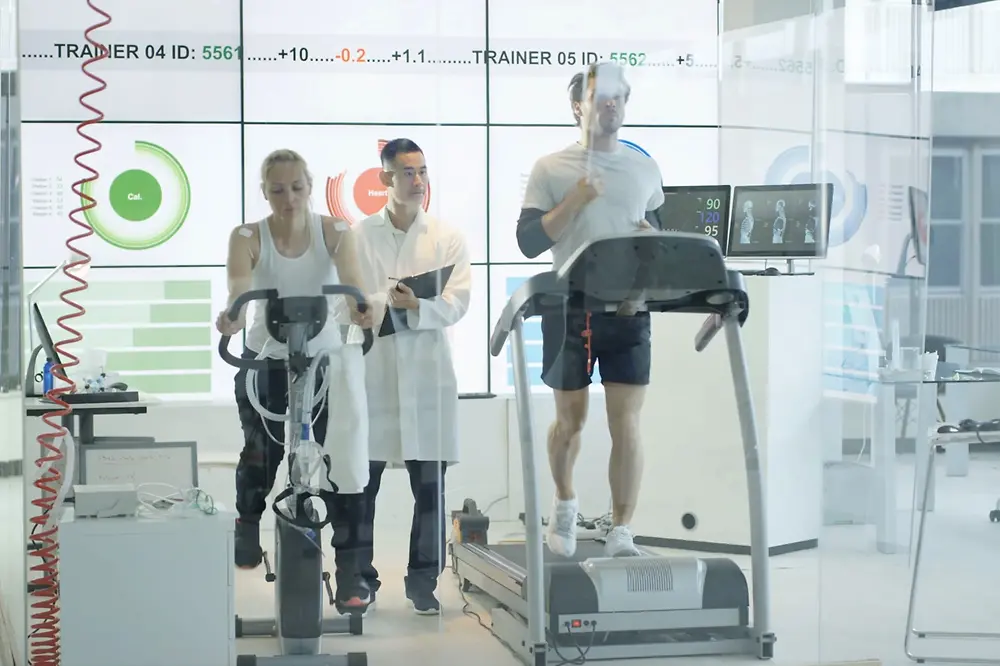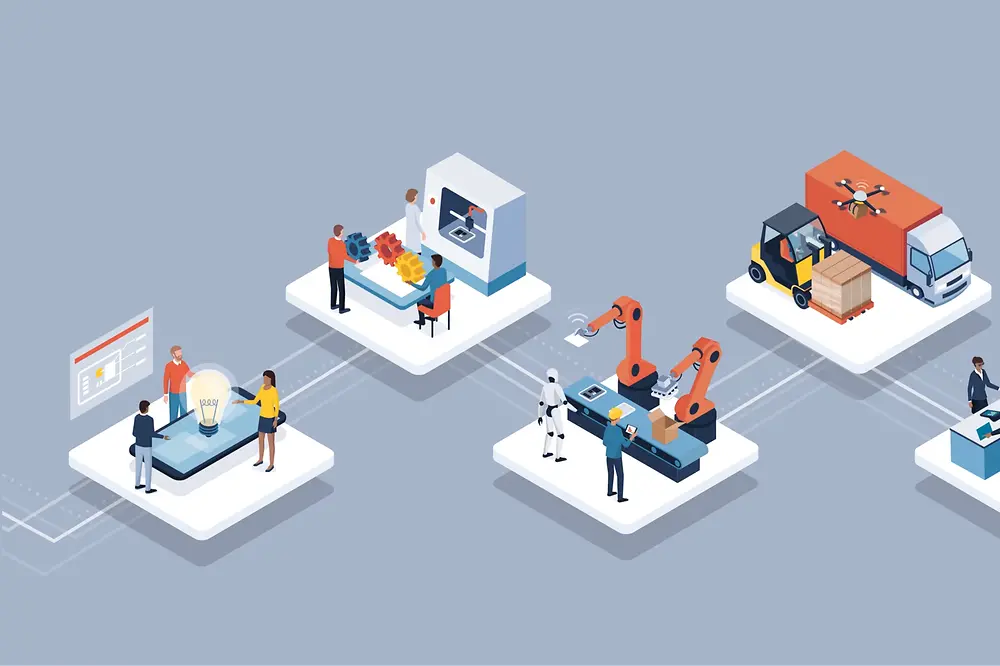Imagine living in a city that tells your car how to avoid traffic. Imagine living in a house that does your grocery shopping for you. Imagine everything in our world was working together to save energy – and preserve our planet for future generations. You’re imagining our shared digital future. And it’s closer than you might think.
Many parts of this futuristic vision are already a reality. With just a single click, we can buy anything we want from e-commerce platforms that offer a huge range of products from around the world. New distribution channels such as direct-to-consumer bring products from the manufacturer directly to our homes. Products are made in smart factories that use sensors and micro-cameras to optimize production and energy efficiency in real time. Advanced technologies like Artificial Intelligence and machine learning are solving problems and helping to make our lives more convenient. Blockchain technology is making our world faster and more transparent by simplifying interactions between digital processes. And 3D printing is being used to personalize everything from sneakers to car interiors.
We’re already living in the age of digital transformation – and technological changes affect how we work, but also how we live together. Everything is connected. And it is this connectivity that’s changing lifestyles, but also business models. Smart parking guidance systems, for example, help people find parking spaces and reduce stress and unnecessary emissions. The next generation of mobile internet, known as 5G, will connect almost everything and everyone on the planet at rapid speed. It will make it possible for traffic lights in smart cities to communicate with the cars on the road. These connected vehicles, powered by electricity instead of fossil fuels, will use self-driving technology to guide us safely to our smart homes. And these houses and apartments will already have done the cleaning, adjusted the thermostat and put together a list of possible recipes in time to welcome their owners home after work.
